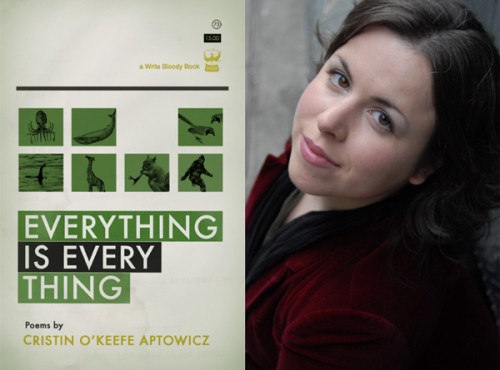Drew Gardner conducts Mel Nichols, Elisabeth Workman, and Nada Gordon in an improvised poetics orchestra at the Zinc Bar, November 22, 2009
httpv://www.youtube.com/watch?v=z72_xXC7Wvk’
Drew Gardner conducts Mel Nichols, Elisabeth Workman, and Nada Gordon in an improvised poetics orchestra at the Zinc Bar, November 22, 2009
httpv://www.youtube.com/watch?v=z72_xXC7Wvk’
Reup on two Diane Williams interviews, old and new, (1) by John O’Brien at Dalkey Archive, and (2) by Kevin Sampsell at New York Tyrant: “My motive is to break up and reorganize. My prayer is that a new object may be revealed. An object can be seen with clarity and still be mysterious. I love Magritte’s observation that the mind loves mystery because the mind knows that it is mysterious.”
***ESSENTIAL INDIE-LIT SECRET SANTA UPDATE: For those of you who ALREADY signed up, you MUST enter your MAILING ADDRESS. You weren’t asked for it automatically yet. Your recipient will, obviously, need it. So, GO TO THE “YOU” TAB on Elfster, then click on UPDATE YOUR PROFILE, and then ENTER YOUR MAILING ADDRESS and hit CONTINUE and then CONTINUE again and you’re golden. If you haven’t signed up yet, sign up and do this after you sign up.***
First, thanks so much to all of you who read/took/RT’d/linked to/commented on the Dave Wallace grammar challenge. I wanted to pay a small, quiet tribute to someone who did a great lot for me, and I am floored by the response. I’m beginning to feel like a broken record in the comments sections, though, as they are increasingly hard to navigate, and many readers have taken similar but separate umbrage with the idea of teaching or testing Standard Written English in the first place. Wallace addresses this in the essay I linked to in the answers post, but as the comments keep rolling in, I want to summarize some of what he taught me about this issue.
So. The quiz was intended to help writing workshop students spot errors w/r/t the current conventions of Standard Written English (SWE). The point is NOT to teach students to lord little rules over their friends; the point is to be more careful writers. And why does knowing the current conventions of SWE help us become careful writers?
Probably the most important reason is to avoid ambiguity. We want to make our meaning clear. Putting modifiers far from what they modify creates extra work for the reader, so we learn to spot this trouble area. Professor Wallace distinguished between good, rich ambiguity (even in grammar–cf the brilliantly dangling modifiers of Barry Hannah) and bad, distracting ambiguity, where we cause our reader to wonder whether we’ve made a calculated nonstandard choice (which is fine as long as our readers can tell) or merely don’t know the current accepted standards are in usage in grammar. He wanted us to avoid the latter kind of ambiguity. READ MORE >
httpv://www.youtube.com/watch?v=K6_VAiznSTc
Harvey Sid Fisher is playing the Jewelbox Theater tonight. Kills me that I already have plans.
Harvey Sid Fisher is better than 90% of American fiction.
(If you are from elsewhere in Washington state or Oregon, there is probably still time to get on the road for this show.)

I like Cristin O’Keefe Aptowicz so much that every day this week, I’ll be posting excerpts from a really long interview between Cristin and I about writing, New York and her forthcoming book Everything is Everything which will be released in January 2010 by Write Bloody Press. In today’s final excerpt, Cristin talks about what keeps slam poets from the printed page, really huge Word files and guardians of slam poetry history.
via Ken’s Twitter feed